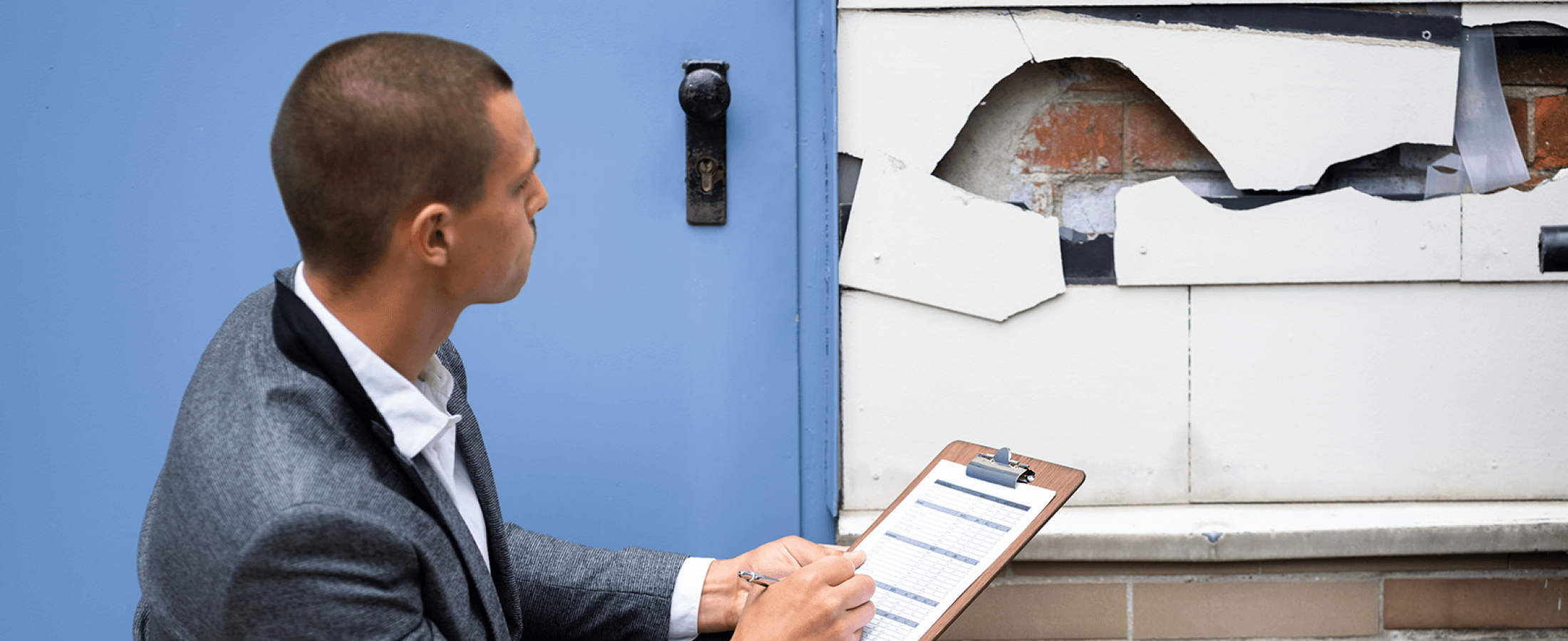
Why is an inspection important in the homebuying process?
You’ve spent the time looking for your dream home, put in an offer, and now it’s been accepted. Now what?
There are more hurdles to clear before you close on your home. An important part of the homebuying process includes the home inspection. But wait … before you say no, think about why a home inspection is crucial.
What is a home inspection?
Home inspections are highly recommended. A professional gives a thorough visual examination of the physical structure and systems of the house from roof to foundation to ensure it’s safe and livable. The goal is to uncover any issues with the home. According to the American Society of Home Inspectors, a single-home inspection on average takes about two to four hours to complete depending on the size and condition of the home.
It’s worth in the investment to have a home inspection. Not only will a home inspection catch any potential issues, but you’ll also feel better knowing there may not be major repairs now or down the road. The inspection gives you the options for purchase price and cost negotiations. You can consider adding a continency in the contract depending on the inspection outcome.
Who pays for the home inspection?
The buyer pays for the inspection. The seller may get an inspection to address any issues, but you should still order one. This makes sure there aren’t any missed issues with the home. Prices may vary, but you’ll usually pay the inspector at the time of service.
Your realtor may give you information about the inspection; however, it is your responsibility to choose your own inspector. Make sure the inspector you pick doesn’t have any relations to the seller or realtors involved in the homebuying process. The inspector should be a member of a reputable company.
Schedule the inspection after your offer but before the closing. The inspection should be conducted within the contingency period detailed in the contract. This gives time after the inspection to fix any issues. You may be able to renegotiate your offer or request repairs. You may even walk away from the offer if the inspection reveals more than what you can handle.
Do you have to be at the inspection?
You are not required; however, according to the American Society of Home Inspectors, they recommend attending to learn more from the inspection. You can observe the inspector and ask questions. This may help you learn the condition of the home and how to take care of it. For example, you’ll know where the gas and water shut-offs are located and how the water heater and heating systems work.
What happens during an inspection?
The inspector does a detailed walk-through of the home, taking notes and pictures. If you’re attending, the inspector will comment on what they see. They will provide you with an unbiased opinion of the home’s condition. This will include:
- Heating system
- Central air conditioning system
- Interior plumbing system
- Electrical system
- Roof, attic, and visible insulation
- Walls, ceilings, floors, doors, and windows
- Foundation, basement, and structural components
An inspector may not comment on anything aesthetic unless it’s a larger problem. For example, a stain on the ceiling may indicate water damage. They can only review readily accessible and observable systems. Other items inspectors won’t check may include:
- Anything behind walls such as plumbing and wiring
- Chimneys, flues, or vents
- Smoke or carbon monoxide alarms, security systems, or other alarm systems
- Screens, screen doors, awnings, shutters, or window boxes
- Sewage systems such as septic tanks
How does a home inspection affect the sale?
After the inspection, you and the seller will receive a copy of the report that includes summaries, photographs, and notes. It will estimate the remaining life of major systems and equipment, roof, structure, paint, and finishes. It may also recommend any repairs or replacements. Once you have reviewed the results, you can:
- Go ahead with the purchase as is. Make sure you know how much it will cost to make any repairs.
- Ask the seller to make any repairs. You can make this a condition of the closing.
- Use the inspection report to negotiate a better price. The report may prove there is a significant number of repairs, meaning the seller may reduce the price to cover the fixes.
- Walk away. Your contract may have a contingency that allows you to back out without penalty or loss of money if the repairs are too expensive.
The information in this article was obtained from various sources not associated with Adirondack Bank. While we believe it to be reliable and accurate, we do not warrant the accuracy or reliability of the information. Adirondack Bank is not responsible for, and does not endorse or approve, either implicitly or explicitly, the information provided or the content of any third-party sites that might be hyperlinked from this page. The information is not intended to replace manuals, instructions or information provided by a manufacturer or the advice of a qualified professional, or to affect coverage under any applicable insurance policy. These suggestions are not a complete list of every loss control measure. Adirondack Bank makes no guarantees of results from use of this information.

